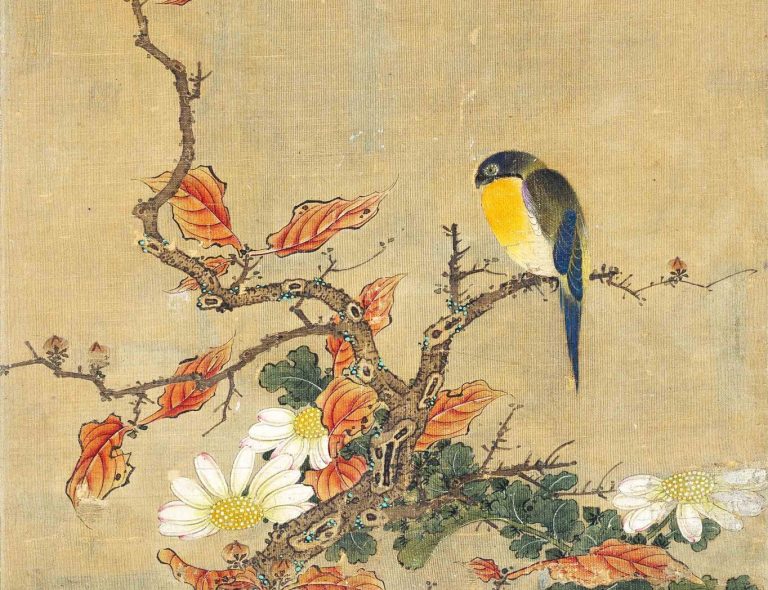Repaying a debt of gratitude, or bao en (報恩), is an important concept in traditional Chinese culture, and it is often demonstrated in legends and heroic stories of the past. In this story it manifests as a good deed rewarded for generations to come.
Yang Bao and the yellow bird
2,000 years ago, there was a hermit named Yang Bao. When Yang Bao was nine years old, he saw a hawk attacking a small yellow bird which had been injured in falling from a tree, and was then crawling with ants. Yang Bao rescued the poor creature and took it home. He kept it in a box, and fed it nothing but yellow flowers. After 100 days, the little bird had recovered and flew away.
That night, Yang Bao dreamed of a young man dressed in yellow who came to express his gratitude, saying, “I’m an envoy of the Queen Mother of the West (a goddess in traditional Chinese culture). You were benevolent and saved my life.”
“To show my gratitude, I am offering these gifts.” said the young man, giving Yang Bao four white jade rings.
“They will help your descendants have top status in the royal palace,” he told Yang Bao, “and make them upright and as pure as white jade in virtue and character.”
Success
You are now signed up for our newsletter
Success
Check your email to complete sign up
When he awoke, Yang Bao found that the jade rings were a reality, and what the envoy foretold was indeed realized in the future. Four of Yang Bao’s offspring served as the country’s commanders-in-chief.
Good deed rewarded through generations
His son Yang Zheng (54-124 AD) served as a Grand Commandant, the highest military commander in the country during the Eastern Han, or later Han Dynasty (25-220 AD).
He was also called “Confucius of the West” by local people as he was diligent in study and virtuous in character.
Confucius was a Chinese sage who lived from 551 to 479 BC. He is the founder of Confucianism, a philosophy of thought that promotes ethics and morality, and teaches intellectuals how to achieve the status of Jun Zi (君子), a traditional gentleman with a high moral standard and great virtue.
Yang Zheng was a true Jun Zi. He dared to speak the truth in the face of wrong, and was thus regarded as a threat to the corrupt officials in power.
When Yang Zhen was 71 years old, he was framed, removed from his office, and sent back to his hometown. To express his innocence, Yang Zhen killed himself on his way home.
Yang Bao’s grandson Yang Bing (92-165 AD) was prime minister and Grand Commandant. His great-grandson Yang Ci (?- 185 AD) and great-great-grandson Yang Biao (142-225) also served as Grand Commandants. Historically, all of them were noted in official records as being upright and honest.
Many of Yang Bao’s later descendants were also government officials in Chinese history, reaching all the way to the 15th generation, in which Yang Jian became the founder of the Sui Dynasty from 581 to 619 AD.
The Sui Dynasty was pivotal in Chinese history, as it united China after an age of political chaos and civil wars, which had split the country into different short-lived dynasties from 420 to 589 AD (after the Han Dynasty).
Conquering the nomadic dynasties, the Sui merged China’s nomadic cultures with the Huaxia culture, and laid an important foundation for the Tang Dynasty (618-907 CE), one of China’s grandest eras.














